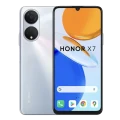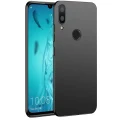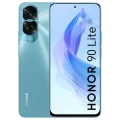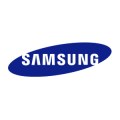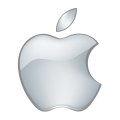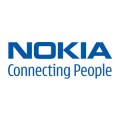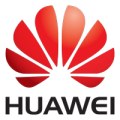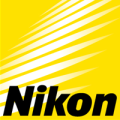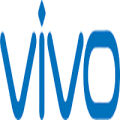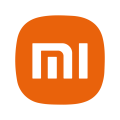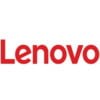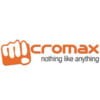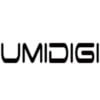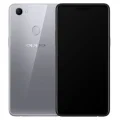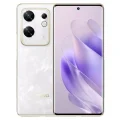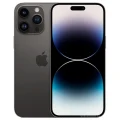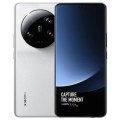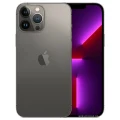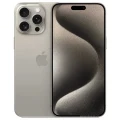Honor 8X
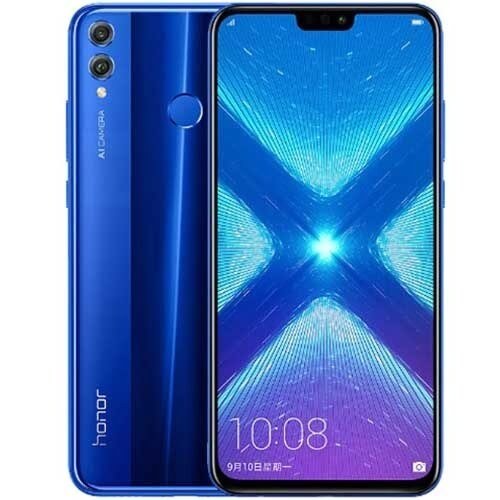


Honor 8X Price in Bangladesh
Honor 8X price in Bangladesh is BDT 21,900. This smartphone features a 6.5-inch IPS LCD capacitive touchscreen with a screen-to-body ratio of approximately 84.4% and a display capable of showing 16 million colors. It is powered by an octa-core Hisilicon Kirin 710 processor, consisting of 4 cores at 2.2 GHz (Cortex-A73) and 4 cores at 1.7 GHz (Cortex-A53), built on a 12 nm process. The device offers options for 4 GB or 6 GB of RAM and comes with either 64 GB or 128 GB of internal storage, which can be expanded up to 400 GB using external storage. The stylish design includes a dual rear camera setup of 20 MP and 2 MP, along with a 16 MP front camera for selfies. It is equipped with a standard 3750 mAh Li-polymer battery.
Specifications
General
| Model | Honor 8X |
| Announced | 2018, September |
| Released | 2018, September |
| Status | Available |
Design
| Dimensions | 160.4 x 76.6 x 7.8 mm (6.31 x 3.02 x 0.31 in) |
| Weight | 175 g (6.17 oz) |
| Colors |
Black, Blue, Red, Pink |
Network
| Technology | GSM / CDMA / HSPA / LTE |
| 2G Network |
GSM 850 / 900 / 1800 / 1900 - SIM 1 & SIM 2 CDMA 800 & TD-SCDMA |
| 3G Network |
HSDPA 850 / 900 / 2100 |
| 4G Network |
LTE band 1(2100), 3(1800), 5(850), 8(900), 38(2600), 39(1900), 40(2300), 41(2500) |
| GPRS <strong>GPRS</strong> (General Packet Radio Service) is a packet oriented mobile data service on the 2G and 3G cellular communication system's global system for mobile communications (GSM), Generally, GPRS is used for the purpose of wireless data transfer, such as sharing pictures and videos or browsing the Internet via a mobile phone connection. | |
| EDGE <strong>EDGE</strong> (Enhanced Data GSM Environment) is a wireless network technology generally considered the next step in the 2G network offers data transfer rates up to four times faster than ordinary GSM networks, Generally, EDGE is used for the purpose of wireless data transfer, such as sharing pictures and videos or browsing the Internet via a mobile phone connection. | |
| Speed | HSPA, LTE-A |
Display
| Display Type <strong>Display Technology => </strong> A number of display technologies and types used in mobile phones => TFT (Thin Film Transistor), IPS (In-Place Switching), OLED (Organic Light Emitting Diode), AMOLED (Active-Matrix Organic Light-Emitting Diode), Super AMOLED (an even advanced version of AMOLED), Resistive Touchscreen (Resistive touchscreens contain two layer of conductive material with a very small gap between them which acts as a resistance), Capacitive Touchsceen (Capacitive touchscreen technology consists of a layer of glass coated with a transparent conductor) | IPS LCD capacitive touchscreen, 16M colors |
| Size | 6.5 inches, 103.7 cm2 (~84.4% screen-to-body ratio) |
| Resolution | 1080 x 2340 pixels, 19.5:9 ratio (~396 ppi density) |
Camera
Main camera
| Camera Setup | Dual |
| Primary <strong>Camera</strong> is able to capture photographs and usually videos, The most important characteristics of a camera are the resolution (measured in megapixels), lens focus type (fixed or automatic), higher megapixel cameras are known to capture higher quality photos, but not always a good measurement of the photos quality. |
20 MP, f/1,8, PDAF 2 MP, depth sensor |
| Features |
LED flash, panorama, HDR |
| Video | 1080p@30fps |
Selfie camera
| Camera Setup | Single |
| Primary <strong>Camera</strong> is able to capture photographs and usually videos, The most important characteristics of a camera are the resolution (measured in megapixels), lens focus type (fixed or automatic), higher megapixel cameras are known to capture higher quality photos, but not always a good measurement of the photos quality. |
1080p@30fps |
Hardware
| Chipset <strong>Chipset</strong> is a group of integrated circuits designed to perform one or a more dedicated functions, often with real time computing constraints, Popular smartphones are equipped with more advanced embedded chipsets that can do many different tasks depending on their programming. | Hisilicon Kirin 710 (12 nm) |
| CPU <strong>CPU</strong> (Central Processing Unit) mostly known as processors, CPU processes instructions in order to carry out certain functions that make your device operate properly. Processors are often described as the brain of computers, smartphones and tablets, Smartphones and tablets rely on processors to carry out their every task, Processors are an incredibly important factor in selecting any type of computing device, including your smartphone. | Octa-core (4x2.2 GHz Cortex-A73 & 4x1.7 GHz Cortex-A53) |
| GPU <strong>GPU</strong> (Graphics Processing Unit) is a single-chip processor designed to rapidly manipulate and alter memory to accelerate the creation of images in a frame buffer intended for output to a display, This includes things such as lighting effects, object transformations, and 3D motion. | Mali-G51 MP4 |
| RAM (Memory) <strong>RAM</strong> (Random Access Memory) is a type of computer memory that can be accessed randomly, any byte of memory can be accessed without touching the preceding bytes that allows information to be stored and accessed quickly from random locations. RAM is the most common type of memory found in computer systems, smartphones, tablets and other electronic devices. | 6/4 GB |
| Internal Storage <strong>Internal Storage</strong> is a data storage space (flash memory) mostly used in smartphones, tablets and other electronic devices where operating system, apps, music, photos, videos, files and other user data Is stored. | 64/128 GB |
| Sensors <strong>Sensors</strong> are electronic components that detects and responds to some type of input from the physical environment. The specific input could be light, heat, motion, moisture, pressure and location, The output is generally a signal that is converted to use in computing systems, a location sensor, such as a GPS receiver is able to detect current location of your electronic device. |
Fingerprint - (rear-mounted), accelerometer, gyro, proximity, compass |
Connectivity
| Bluetooth <strong>Bluetooth</strong> is a wireless communications technology for exchanging data between mobile phones, headsets, computers and other network devices over short distances without wires, Bluetooth technology was primarily designed to support simple wireless networking of personal consumer devices. | 4.2, A2DP, LE, aptX |
| Infrared <strong>Infrared</strong> connectivity is an old wireless technology used to connect two electronic devices. It uses a beam of infrared light to transmit information and so requires direct line of sight and operates only at close range. | |
| USB | microUSB 2.0, USB On-The-Go |
| GPS <strong>GPS</strong> The Global Positioning System is a satellite-based radio navigation system, GPS permits users to determine their position, velocity and the time 24 hours a day, in all weather, anywhere in the world, In order to locate your position, your device or GPS receiver must have a clear view of the sky. | Yes, with A-GPS, GLONASS, BDS |
| NFC <strong>NFC</strong> (Near field communication) is a set of standards for smartphones and similar devices to establish peer-to-peer radio communications with each other by touching them together or bringing them into proximity, usually no more than a few inches. |
Battery
| Battery Type <strong>Battery Type => </strong> Cell phones run on various kinds of batteries depending on the manufacturer, phone size or shape and features. There are basically four types of cell phone batteries => Lithium Polymer, Lithium Ion, Nickel Metal Hydride and Nickel Cadmium. | Non-Removable Li-Po |
| Capacity <strong>Battery Capacity</strong> is a measure (typically in Amp-hr) of the charge stored by the battery, and is determined by the mass of active material contained in the battery. The battery capacity represents the maximum amount of energy that can be extracted from the battery under certain conditions. | 3750 mAh battery |
| Charging Charging | Charging 5V/2A 10W |
Honor 8X Shines Bright in the Mid-Range Smartphone Market
The smartphone market is bustling with options, but finding the perfect balance between performance, design, and price can be challenging. Enter the Honor 8X, a phone that aims to capture the essence of premium features at a fraction of the cost. But how well does it stack up against its promises? Let’s explore.
Sleek Design with a Stunning Display
The first thing you’ll notice about the Honor 8X is its sleek design. With a premium glass back and aluminum frame, it feels more luxurious than its price suggests. The phone’s large 6.5-inch display dominates the front, boasting a Full HD+ resolution of 1080 x 2340 pixels. This translates into vivid colors and crisp details, making it a pleasure to use for browsing, gaming, or watching videos.
One standout feature is the minimal bezel, which gives the Honor 8X a modern and immersive look. The screen-to-body ratio is impressive, providing a larger viewing area without making the phone cumbersome to hold. The eye comfort mode, certified by TUV Rheinland, reduces blue light emissions, making it easier on the eyes during extended use.
The phone’s build quality is robust, and it feels solid in the hand. Despite its large size, the curved edges ensure a comfortable grip. The Honor 8X is available in several striking colors, including blue, black, and red, allowing users to choose a variant that suits their style.
Camera Performance That Impresses
The Honor 8X boasts a dual-camera setup on the rear, featuring a 20MP primary sensor and a 2MP depth sensor. This combination allows for impressive photo quality, especially in well-lit conditions. The camera captures detailed images with vibrant colors, making it ideal for everyday photography.
Low-light performance is often a challenge for mid-range phones, but the Honor 8X manages to hold its own. With AI-driven enhancements, the camera can adjust settings automatically to optimize shots in different lighting conditions. This results in clearer and more detailed photos, even when the lighting isn’t perfect.
Additional camera features include a portrait mode that creates a pleasing bokeh effect, and various AI scene recognition modes that can identify and optimize settings for different subjects, from food to landscapes. The front-facing 16MP camera ensures that selfies are sharp and well-lit, thanks to the screen flash feature.
Reliable Battery Life and Performance
Under the hood, the Honor 8X is powered by the Kirin 710 processor, coupled with 4GB or 6GB of RAM, depending on the variant. This combination ensures smooth performance for day-to-day tasks, from browsing and social media to gaming and multimedia consumption.
Battery life is another strong point for the Honor 8X. Equipped with a 3750mAh battery, the phone easily lasts through a full day of usage. With moderate use, you can even stretch it into the next day. The power-efficient Kirin 710 chip, along with intelligent battery management features, helps optimize power consumption.
In terms of real-world performance, the Honor 8X handles multitasking with ease. Apps open quickly, and switching between them is seamless. Gaming performance is respectable, with most games running smoothly at medium to high settings. The phone also supports GPU Turbo, which enhances graphics processing efficiency for a better gaming experience.
User-Friendly Software and Interface
The Honor 8X runs on EMUI, Huawei’s custom skin based on Android. The user interface is clean and intuitive, with a host of customization options to tailor the experience to your liking. EMUI includes several pre-installed apps, but most of them can be uninstalled if not needed.
One unique feature of EMUI is the inclusion of gestures that make navigation more fluid. For instance, you can swipe from the edges to go back, access the home screen, or view recent apps. This gesture-based navigation feels natural and helps maximize screen space.
The phone also comes with useful tools like Phone Manager, which helps optimize device performance, and Health, which tracks your fitness activities. Regular software updates ensure that the Honor 8X remains secure and up-to-date with the latest features.
Great Value for Money
When it comes to value for money, the Honor 8X stands out in the crowded mid-range segment. Its combination of premium design, robust performance, and versatile camera capabilities make it a compelling choice for budget-conscious consumers. Compared to competitors like the Xiaomi Mi A2 and the Samsung Galaxy A7, the Honor 8X offers a better balance of features and price.
The phone’s affordability doesn’t mean compromising on quality. The attention to detail in both the hardware and software aspects underscores Honor’s commitment to delivering a premium experience at an accessible price point.
Conclusion
In summary, the Honor 8X is a standout performer in the mid-range smartphone market. Its sleek design, impressive display, capable camera, and reliable performance make it a great all-around device. Whether you’re a tech enthusiast looking for the latest features or a casual user seeking a dependable phone, the Honor 8X has something to offer.
If you’ve had the chance to use the Honor 8X, we’d love to hear your thoughts and experiences. Share your insights in the comments below and join the conversation. For those considering the Honor 8X, take the plunge and discover a smartphone that truly shines in its category.
